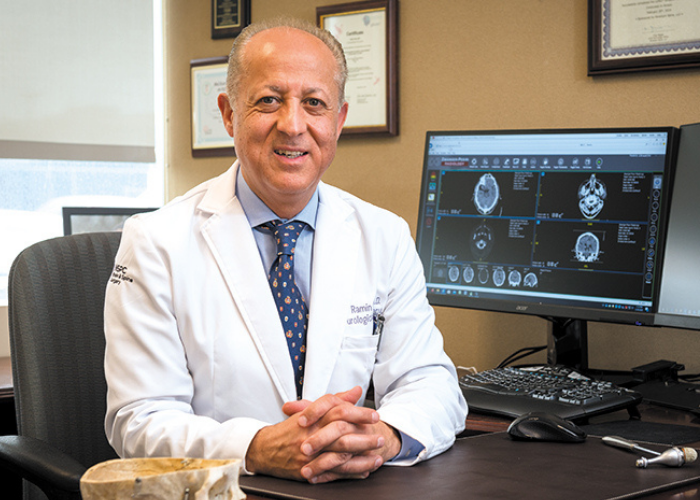- PATIENT FORMS | REQUEST A CONSULTATION | CONTACT US
- 1-844-NSPC-DOC
Recovery from Spinal Stenosis Surgery

Pediatric Epilepsy Specialists
January 19, 2018
Dr. Rak, our beloved surgeon and friend, who helped conquer both tumor and stenosis to give Roger back his life
January 25, 2019If you are living with spinal stenosis and are considering surgery, researching the recovery process is essential. Depending on the severity and location of your spinal stenosis, there are different types of surgical options available. Each of these options will produce different recovery times and movement restrictions. Read below to get a general understanding of recovery from spinal stenosis surgery.
What does spinal stenosis surgery usually do?
Spinal stenosis surgery can include removing bone and herniated disc material to replacing and fusing the spine. Your options will vary based on where your spinal stenosis of the spine is occurring. There are different procedures for lumbar spinal stenosis versus stenosis of the neck.
If you are undergoing decompressive laminectomy, you can expect a small incision where portions of your bone will be removed. This allows for pressure relief on your spinal nerves. In a situation where your spine needs further support, your spine doctor might recommend a spinal fusion. An anterior cervical discectomy typically requires your surgeon to fuse your spine to get the best results. Each case requires specialized diagnosis and treatment plans. At NSPC our award-winning team of neurosurgeons is experienced in solving the challenges of neck and back pain.
What kind of restrictions can you expect post surgery?
Two to three days post surgery, you will be released from the hospital and be able to begin your recovery process. It is important to limit certain types of movements and activities that you engage in after your surgical procedure. Lifting heavy items, bending and twisting can cause you to negatively impact the results of your surgery.
To have an optimal outcome, you should be very careful with how you move. Driving, housework, long periods of sitting, smoking and taking non-steroidal anti-inflammatory drugs can be harmful to your recovery process. Make sure to sit down with your physician to get a clear list of things you can and cannot do, in order to make sure your spinal surgery is a complete success.
When can you expect to see results?
Typically 4-6 weeks after surgery, you can return to regular movements and life. Full results from back pain relief might take up to 6 months. During this time, it is essential to undergo outpatient physical therapy sessions to learn how to move correctly. This will help you take care of your spine post surgery, for the best results.
If you are in the New York or Long Island area, our world-class medical staff here at NSPC is ready to help. Understanding spinal stenosis and its treatment options can be overwhelming. Come in for a consultation to see how we can help you have a better, pain-free tomorrow.

